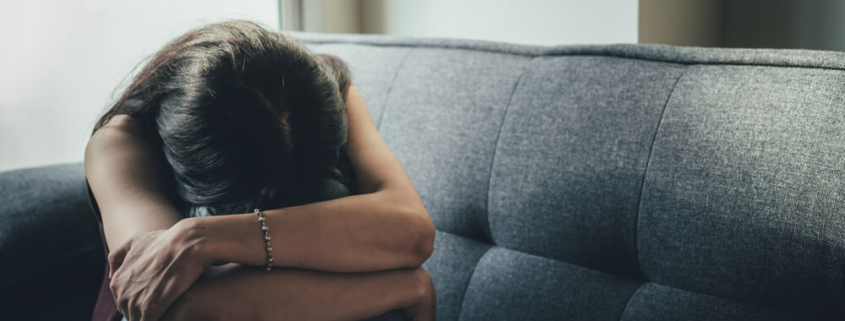Domestic Violence Surges with Coronavirus
Around the world countries are reporting a rise in domestic violence. Authorities have said this is hardly surprising. Reports of domestic violence always increase when families spend more time together. For this reason intimate partner violence hotlines often see an increase in call volume during the holidays. The same is true of most cities around the world as we all take precautions to slow the spread of Covid-19.
However, many major cities are actually seeing a decline. Places like Boston, New York City, and others have seen a significant decline in reports from pre-pandemic numbers. Experts say this drop is bad news.
Crisis Drives Domestic Violence
We know that abuse of any kind is all about power and control. These are unprecedented circumstances. There is much we still do not know about this virus. Researchers aren’t even certain yet if this will be a short or long term issue. Concern over the virus has resulted in very sudden and drastic changes for families all across the nation. People are out of work or working from home. Children who were once in school are now home full time with the added stress of distance learning. Researchers and government agencies are unsure of when to lift the stay at home restrictions.
So much uncertainty has many people feeling like they have very little control over their lives right now. Abusers struggle to handle these kinds of changes. The more out of control they feel, the more an abusers will try to regain that control by taking it out on their victims. Authorities worry that an extended shelter in place order will have disastrous consequences for survivors.
Domestic Violence and Coronavirus: A Means of Control
Unsurprisingly, abusers are taking advantage of the virus to further control their victims. The National Domestic Violence Hotline warns that abusers may use fear of the virus to further isolate and terrorize their victims. Abusive partners may threaten to lock a survivor out of their home to prevent them from leaving. They may share misinformation about the virus to scare survivors into remaining at home, even if they need medical care. They may also use it to prevent them from seeking help from family or friends. “A chatter mentioned that the abuser was using the virus as a scare tactic to keep the survivor away from their kids”, says the Hotline’s website.
It is also not just those trapped at home who are negatively affected by domestic violence and coronavirus. Even essential workers are seeing a change in their abuser’s tactics as a result of the pandemic. One chatter, a healthcare professional, called the Hotline and reported that “they were physically abused … because their abuser was sure they were trying to infect them with COVID-19.”
Virus Prevents Survivors From Seeking Help
The virus itself is also acting as a barrier to survivors seeking help. Southall says that many are choosing to remain at home with their abusers instead of risking exposure to the virus. She cites one example of a woman who called the Violence Intervention Program in New York. She wanted to leave her abusive husband but ‘decided the risk of exposing herself and her infant to the virus at a shelter was too high.’ Margarita Guzmán, the executive director at the Violence Intervention Program stated, “It’s really, for her, a choice between whether she stays with the devil she knows, or whether she risks what could be increased safety from the abuse but could also mean increased risk of the virus, and both with potentially lethal factors at the ends of it.”
Others remain over fears of endangering the lives of the loved ones they might call on for help. The CDC states that those most at risk of becoming seriously ill are the elderly and people with serious underlying health conditions. Many choose to stay out of fear that it would expose their elderly parents or a medically fragile friend to a potentially deadly virus. And with limited shelter space and resources even during the best of times, survivors fear they will have nowhere to go even if they do try to leave.
Why is Reporting Down in Some Places?
Simply put, survivors have lost a major avenue of support. The stay at home order means that survivors are stuck at home where they may have very little privacy from their abuser. Trying to get enough time alone to make a phone call or to talk to a friend or neighbor is a dangerous game. Being confined in such close contact means her abuser is more easily able to keep tabs on her every move. A locked door or a hushed conversation can easily turn into physical violence.
Some programs are now offering text or online counselling to reach those who are housebound. Unfortunately, these platforms pose their own risks. Using text or online chats creates a digital paper trail that abusers can gain access to. And others may have no access to the outside world at all, digital or otherwise. Southall said ‘some victims are … effectively cut off from the outside world. Kavita Mehra, the executive director of Sakhi for South Asian Women, said one client’s husband had disconnected her cellphone to cut expenses after losing his job.’ With the price of failure being more violence, many survivors are choosing to remain silent and lie low until the stay at home orders relax.
Seek Legal Advice
Authorities believe reports of domestic violence will rise as states come out of lock down. States should prepare for an influx of people seeking restraining orders. If you or someone you know is the victim of domestic violence you may be in need of legal services. It is important to seek an attorney who has experience representing domestic violence cases. Look for law firms specializing in personal injury, criminal, and family law. These attorneys, like those at Olmstead & Olmstead, P.C., will be happy to help you protect yourself and your rights.
If you or someone you know is experiencing domestic violence, contact the National Domestic Violence Hotline via text or call at 1-800-799-7233. Here also are some state and national helplines and resources.
Call Olmstead & Olmstead at (703) 361-1555 for more information about domestic violence and Coronavirus.






Leave a Reply
Want to join the discussion?Feel free to contribute!